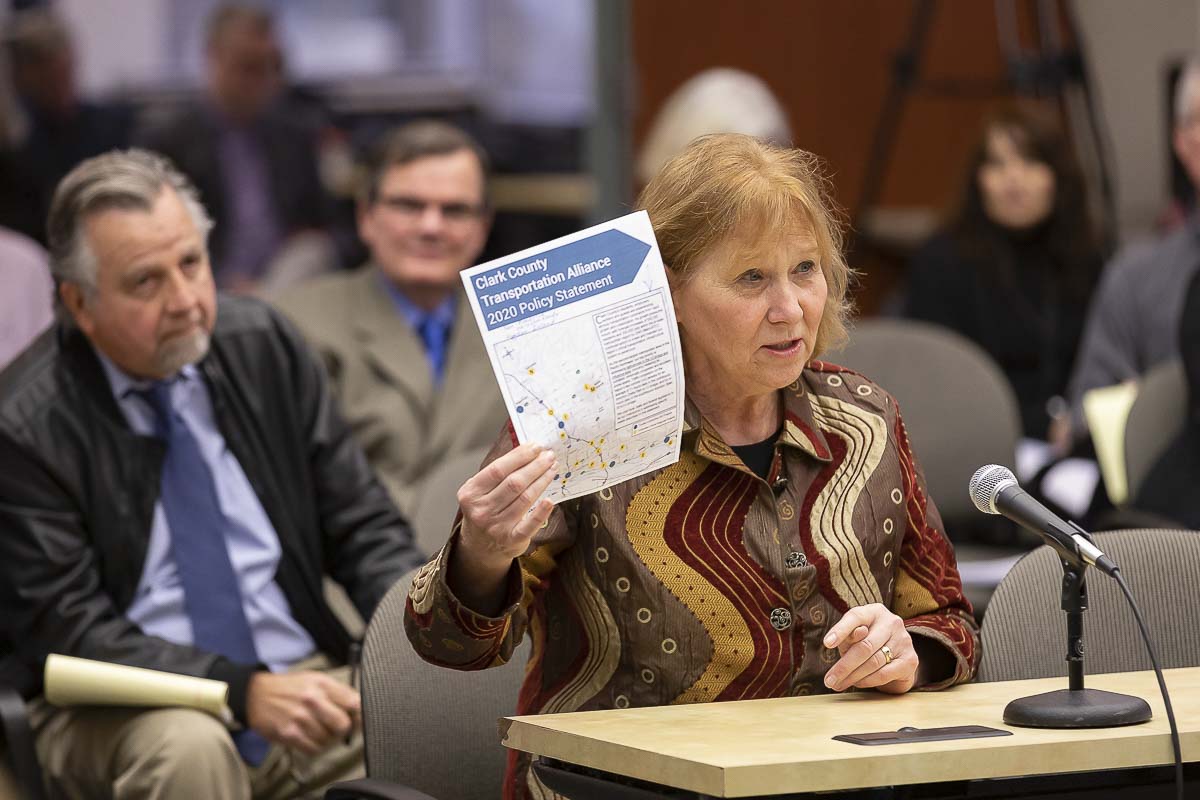Anne-McEnerny-Ogle says city can do a better job of communicating
The community survey that city leaders discussed at a recent retreat and released this week was a large-scale look at how the Vancouver city government has performed in the last three years.
Mayor Anne McEnerny-Ogle said the city is listening.
And starting next month, the city will post mini-polls to get a closer look, more specific reactions from residents as leaders prepare for the next budget.
Earlier this week, Council Member Bart Hansen called the city’s performance “unacceptable” after results of the survey showed that support for the city government had dropped since a similar survey conducted in 2017.
The mayor responded Friday late afternoon in a phone interview with Clark County Today.
“That is not where we wanted to be,” she acknowledged. “We made some gains, but those are areas our residents expect us to improve on.”

Those areas include overall performance, delivering services efficiently, keeping citizens informed, managing the public’s money, and focusing on priorities that matter most to residents.
The city’s grades, if you will, in those categories slipped from 2017.
The mayor also challenged residents to get involved, become more engaged. The survey noted that “keeping citizens informed” had the biggest drop in satisfaction level. McEnerny-Ogle noticed two similarly worded questions.
“How informed are you? How well does the city inform you? Two very different questions,” she said. “‘How informed are you’ puts the responsibility on you. ‘How well does the city inform you’ puts the responsibility on us. How can we continue to work with our citizens to help them be informed?”
She used pavement management as an example. In the 2017 survey, residents listed road maintenance as one of the highest priorities. The city responded, the mayor said.
“We had two summers of the highest pavement management we’ve ever had in the city,” McEnerny-Ogle said.
The city spread out the projects over those two summers, as well, repairing needs all over Vancouver.
The results of the 2020 survey show that overall performance is down and road maintenance remains a high priority.
“Evidently we didn’t communicate that very well,” McEnerny-Ogle said, noting that she touted the pavement management to just about every group she spoke with for two years. “Somehow, that didn’t come across, all the work we had done.”
Starting next month, mini surveys will be posted on the city’s website. The mayor said notices of those surveys will be in neighborhood association newsletters and in water bills sent to residents. City leaders will be taking answers into account as they work on the next budget.
In the past, the city used outdoor celebrations and events to gather information from the public. With those closed down this summer, the city will ask its questions online.
Another result from the survey that concerned McEnerny-Ogle was 73 percent of respondents said they had never watched or attended a Vancouver City Council meeting.
“When does it become your responsibility to open up and ask questions and be a part of it?” she asked.
The mayor is seeing some progress there. Due to COVID-19, residents no longer come to City Hall for the City Council meeting. The mayor has noticed more people calling in, signing up, and then being heard in online meetings.
“I’m so tickled that people are jumping in … to be involved,” McEnerny-Ogle said.
Bottom line, she said, it is the city’s responsibility to get information to residents in a way they will understand. Then it is the responsibility of the residents to help the city come up with priorities.
“It’s a two-way conversation,” McEnerny-Ogle said. “We want to keep you informed. Please help us understand how we can help you.”




